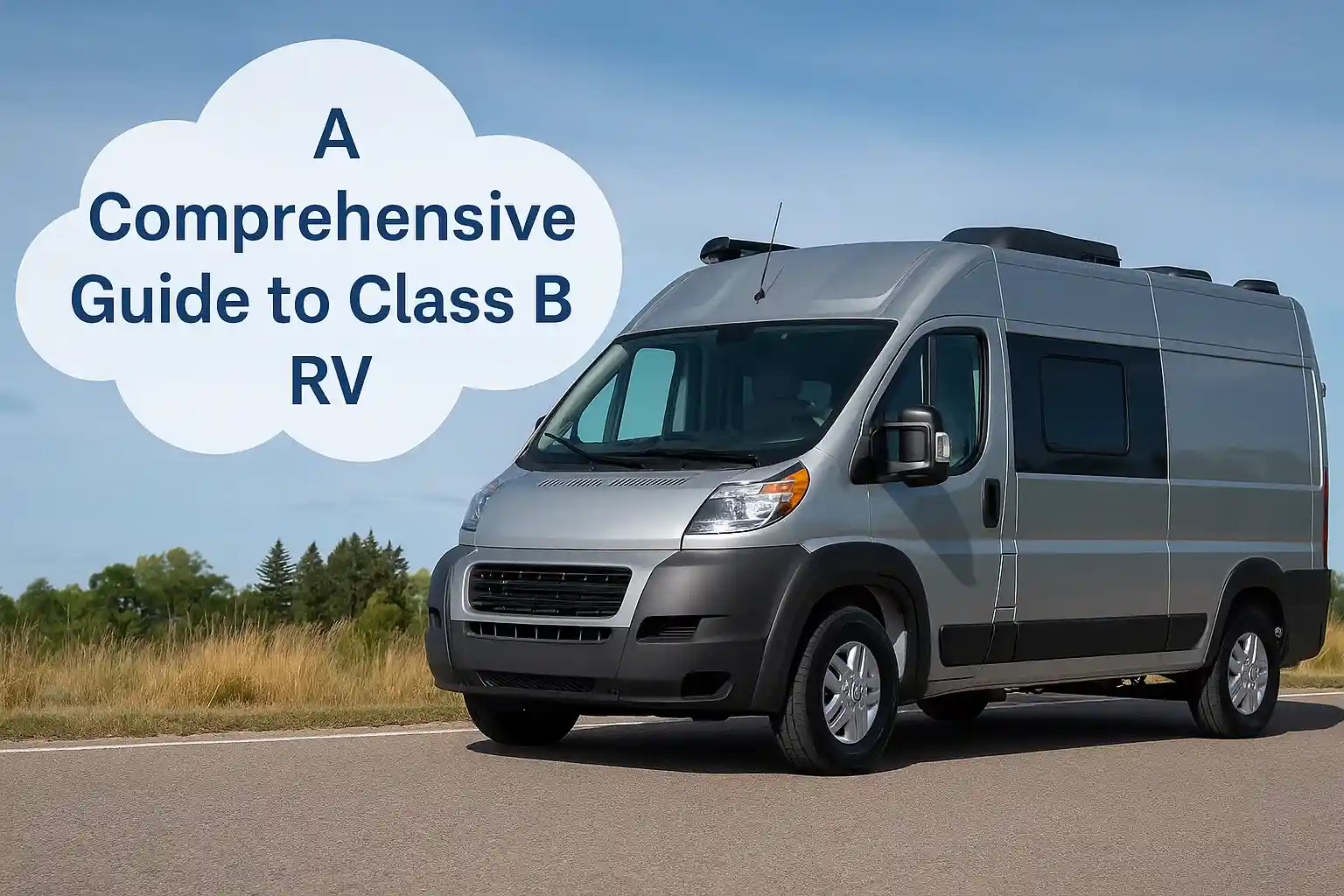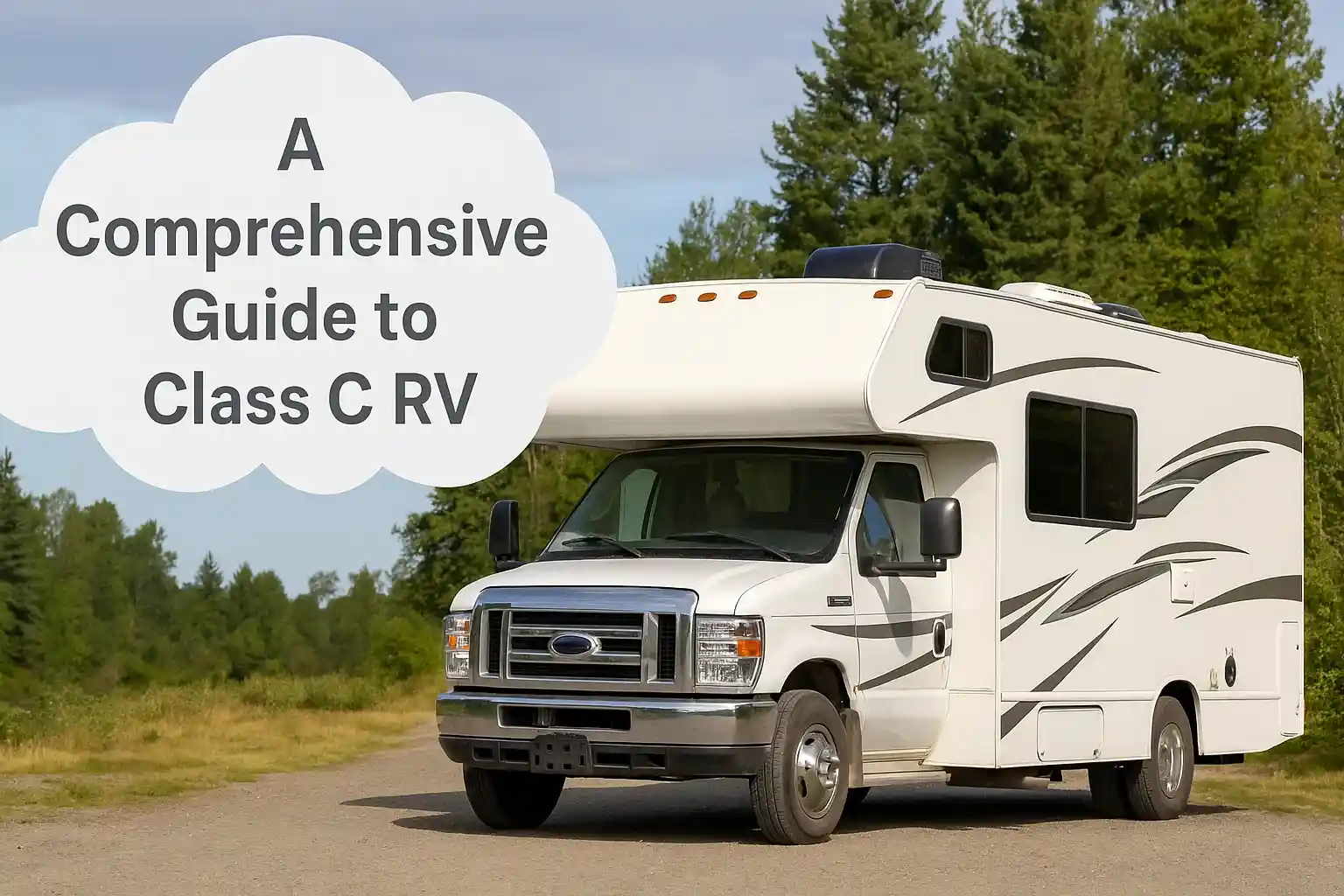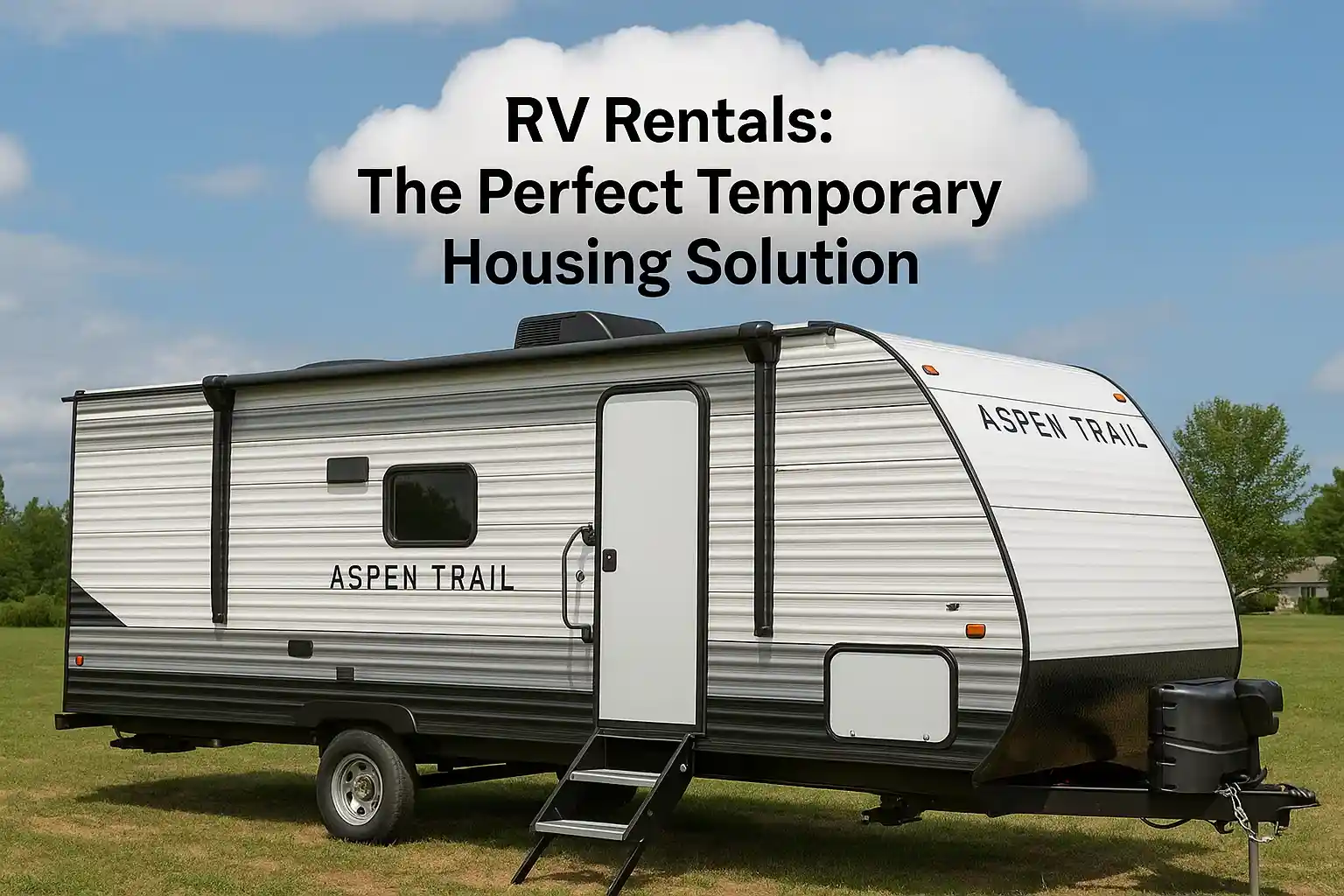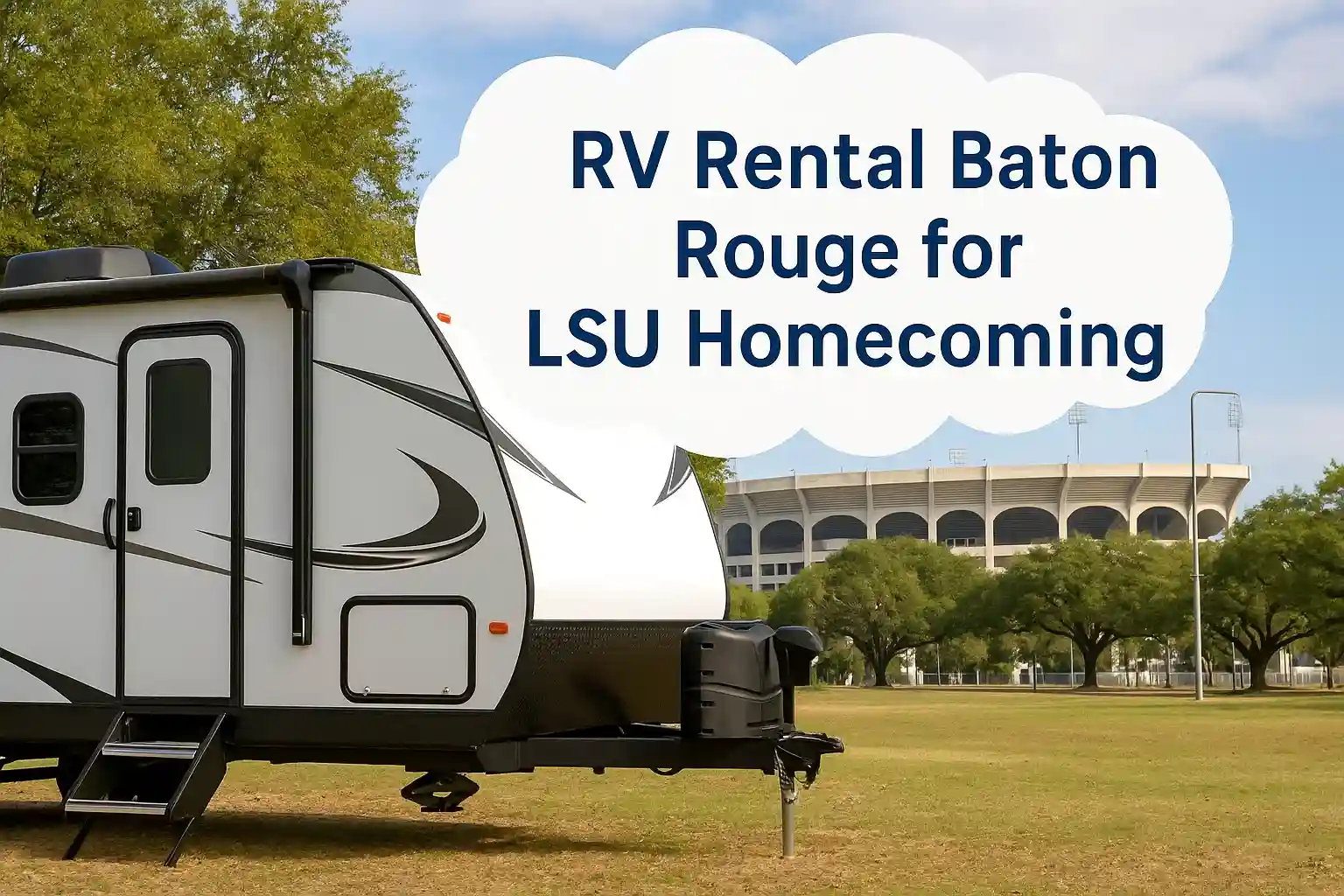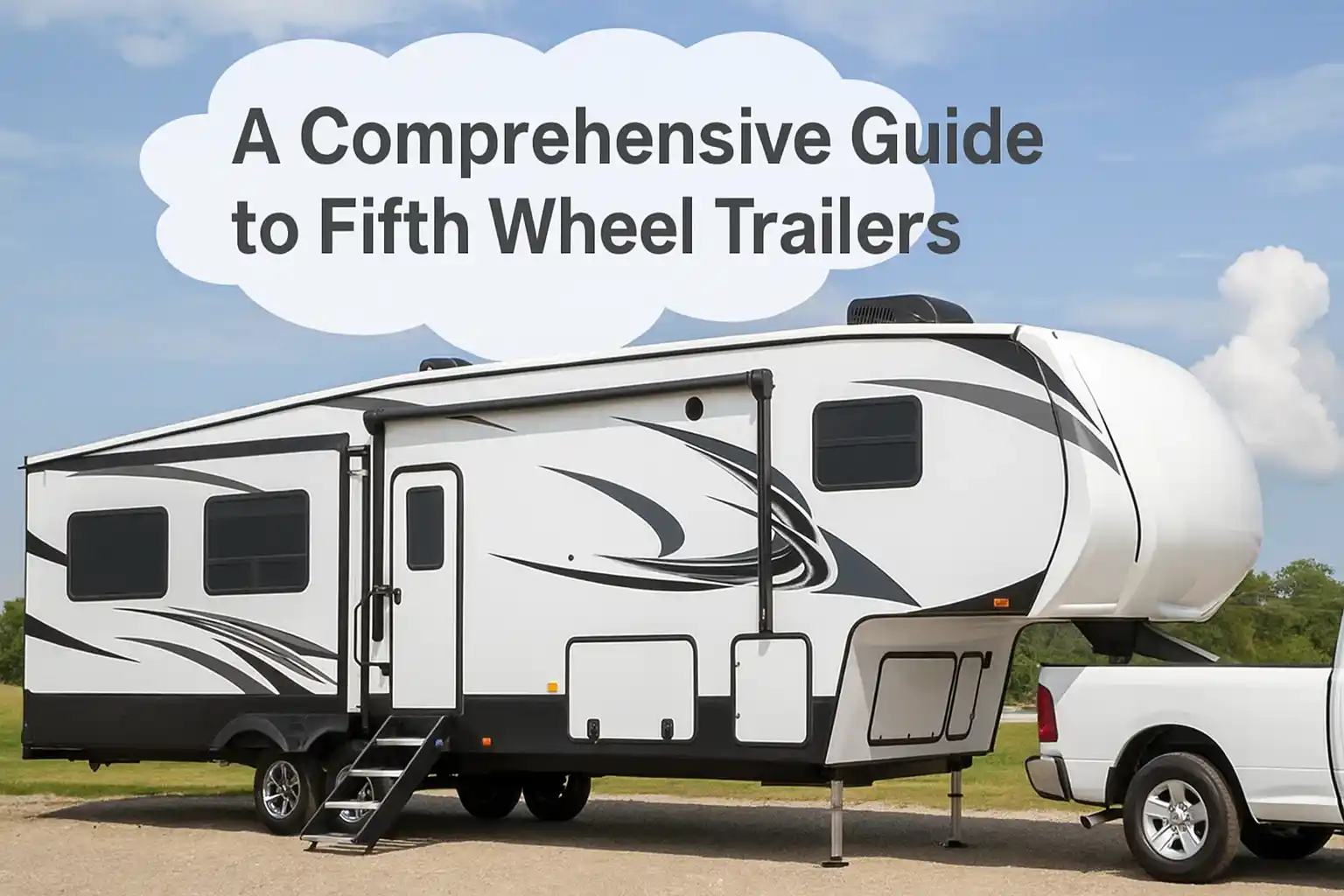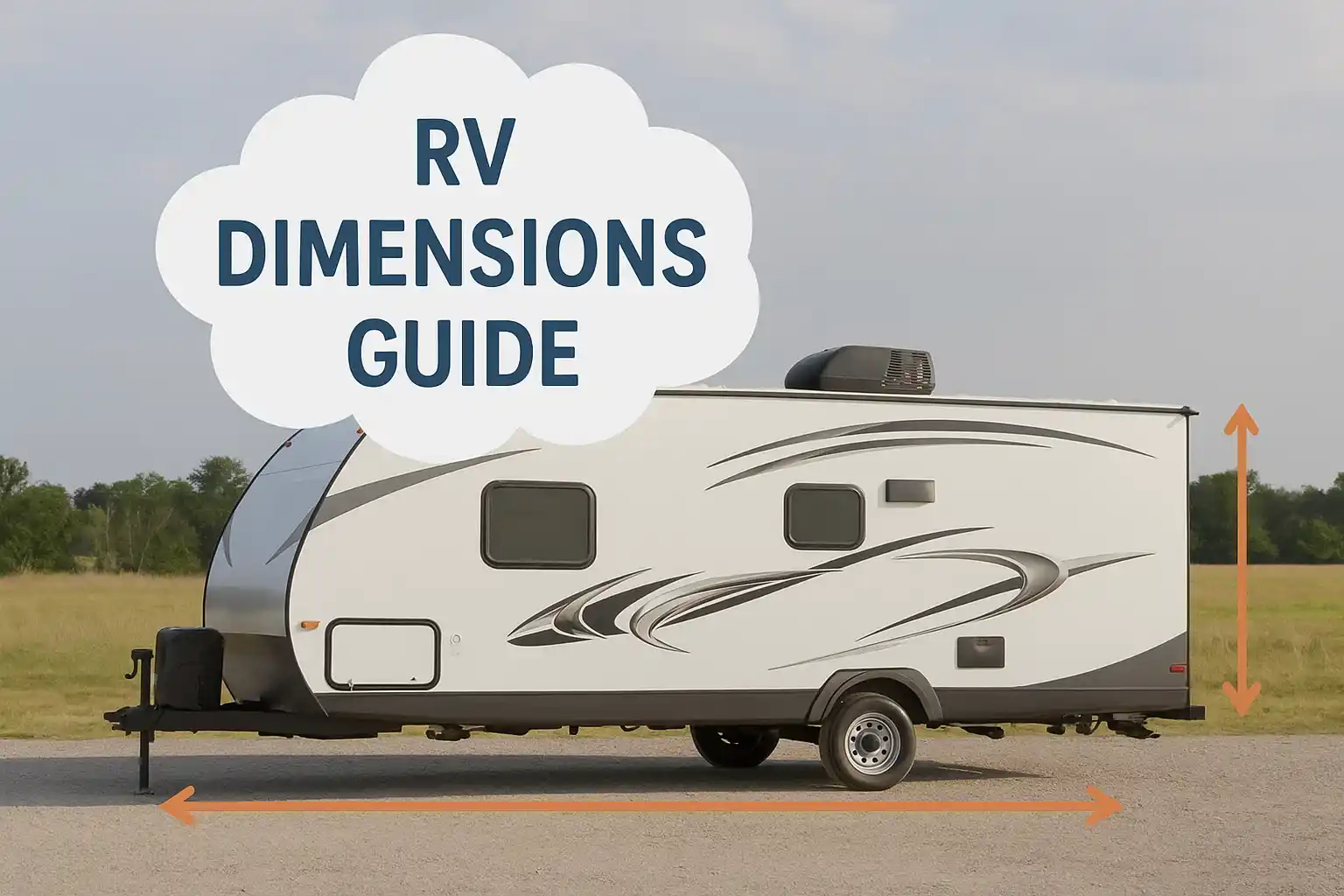Over the past few years, Class B RVs—commonly known as camper vans—have taken the travel world by storm. Compact, comfortable, and cleverly designed, these small motorhomes perfectly balance mobility and convenience. As more professionals, digital nomads, and families embrace road travel in 2025, the demand for efficient and self-contained Class B motorhomes has surged.
The growing popularity of van life and remote work has also played a big role. Travelers now seek freedom without sacrificing comfort, and the Class B RV delivers exactly that. Whether you’re exploring scenic coastal routes, attending festivals, or embarking on a cross-country journey, this compact travel solution offers all the essentials of home—on wheels.
In this comprehensive Class B RV guide for 2025, we’ll break down everything you need to know: what a Class B RV is, its dimensions, advantages, costs, maintenance tips, and how it compares to other RV types. By the end, you’ll have the insights to decide if a Class B camper van is the right fit for your travel goals or next rental adventure.
What Is a Class B RV?
A Class B RV, often called a camper van or Class B motorhome, is the most compact class of motorized RV. It’s built on a standard van chassis—like those from Mercedes-Benz, Ford, or Ram—and transformed into a self-contained living space. It’s essentially your “home on wheels,” scaled-down for ease and mobility.
Unlike larger motorhomes (Class A, Class C), a Class B RV retains the van’s original body contours and does not add a separate coach shell. That means fewer external components and a lower overall profile.
Key Characteristics
Compact Footprint: Most Class B RVs range from about 17 to 22 feet in length, with a width close to that of a van.
Amenities in Miniature: Despite the smaller size, many Class Bs include a kitchen, bathroom (wet bath), sleeping space, and storage—all tightly engineered for efficient use of space.
Ease of Driving: With their size and driving dynamics, Class B RVs are easier to drive, park, and maneuver than larger motorhomes. They’re often welcome in places where bigger RVs can’t go.
Fuel Efficiency & Stealth: Their lower weight and slimmer build often yield better fuel economy compared to larger RVs. Their unassuming profile also makes them more discreet for urban travel or “stealth camping.”
Class B specifications
| Category | Class B Motorhomes |
| Size | 16-19 feet; sometimes with extended ceilings or extra length (Class B+) |
| Weight | 6,000 to 8,000 pounds |
| Mileage | 10-25 miles per gallon |
| Storage | Limited to moderate |
| Sleeping Capability | 2-4 adults; up to 6 in the case of Class B+ |
| Extra Amenities | Slide-outs, wet/dry bathroom compartments with showers, limited kitchenette facilities, leather sofas and sleeping surfaces, onboard plumbing facilities, generator |
| Price Range | $40,000-$80,000+ new |
Who Benefits Most from a Class B?
Class B RVs tend to appeal to solo travelers, couples, or small groups who want convenience without bulk. They’re especially suited for travelers who value flexibility, want to navigate tight roads or urban settings, and prefer the option to use the vehicle as a daily driver.
Because of their compact nature, Class Bs are generally not ideal for large families or extended stays when abundant storage and space are priorities. But for those seeking a nimble, self-contained adventure rig, a Class B hits the sweet spot between functionality and mobility.
Interior Features & Layouts
The real appeal of a Class B RV (camper van) lies less in raw size and more in how intelligently its space is laid out. Good design makes a small home feel far more livable. Here are the key features and layout options people are looking for in 2025:
Smart Sleeping Configurations
Many modern Class B vans offer flexible bed layouts: twin beds that convert into a queen, pop-top sleeping lofts, or fold-away sofas. Example: Winnebago’s Travato 59K uses twin beds that convert to a queen, maximizing room for seating or storage when not used for sleep.
Some vans include Murphy beds, which collapse into the wall to free up floor space during the day. These are especially useful for folks wanting a dedicated lounge/day-use area.
Kitchen & Dining Areas
Kitchens are tightly designed but include full functionality: a compact refrigerator (often 3-6 cu.ft.), a 2-burner stove or induction cooktop, microwave or convection oven, and sink with folding or pull-out countertops in many models.
Dining often doubles as workspace: fold-down tables, adjustable/movable tables (like Lagun systems), and swivel cab seats to form a table setup. Thor’s 2025 B-Van layouts include a Lagun table system replacing pedestal tables to better serve multi-use needs.
Bathroom Styles (Wet Baths)
Nearly all Class B RVs use wet baths, where the shower, toilet, and sink occupy one compact, waterproofed space. They save room and simplify plumbing.
Models also include modern water-saving features. For instance, the Jayco Terrain includes the Aqua View® SHOWERMI$ER™ water-management system, which helps save fresh water until it’s warm enough to use.
Storage & Multipurpose Furniture
Cabinets are designed to maximize every vertical and overhead space. For example, European-style cabinetry, pull-out kitchen countertop extensions, overhead storage with indirect lighting.
Many vans include dual-purpose furniture: benches or seats that double as beds, under-bed storage, or convertible seating. Swivel cab seats are standard in many layouts, turning the driving area into part of the living/dining space when parked.
Ambient Comfort & Tech Features
Ventilation: powered roof vents, deluxe fans, and good air conditioning systems are common. For example, Entegra Launch off-road Class B includes full features: cabinet finishes, lighting zones, and premium AC.
Lighting & privacy: LED lighting (often dimmable), privacy shades (cassette or magnetic), blackout or insulated window coverings, both for cab and living areas.
Power & control systems: Integrated touchscreen control systems (e.g. Firefly or similar), multiple USB / 12V / 120V outlets, and often options for lithium power units or solar panels in newer models.
Layout Trade-offs to Know
Smaller dimensions mean compromises: kitchens might have one burner instead of two; counter space is limited; bathrooms are compact.
Fixed beds reduce flexibility in layout; convertible or fold-away beds increase usable space during the day but require daily setup or stowing.
Slide-outs in Class B are rare; most layout flexibility comes from multi-use furniture and smart storage, not expanding walls.
Why Layout Choices Matter
Selecting the right interior features is about matching your travel style:
If you mostly do weekend trips or are a solo traveler/couple, you may prefer minimalist, convertible layouts to save weight and cost.
For long-term travel or remote work, look for fixed beds, good ventilation, lots of storage, and robust tech/power systems.
Think about seasonal use: good insulation, AC, heat, and shade options matter if you’ll travel in varied climates.
Popular Class B RV Brands & Models
If you’re considering a Class B RV, knowing the top brands and current standout models helps you make a smart choice. Below are some of the most trusted names in 2024-2025, with examples of what makes their Class B motorhomes special.
Winnebago — The Travato Series
Winnebago’s Travato line continues to lead in the Class B camper van market, balancing comfort, modern amenities, and performance. The 2025 Travato models (such as the 59GL, 59G, 59K, and 59KL floorplans) are built on a Ram ProMaster 3.6L V6 gas engine with a 9-speed auto transmission.
The 59GL version comes with a Murphy+ bed, lounge area, and a powerful lithium energy system.
Length: ~21 ft; Exterior Width: ~6’9″; Height: about 9’4″.
Deluxe finishes, solar options, flexible sleeping layouts, and advanced power systems.
If you prioritize efficiency, modern tech, and a layout that supports both comfort and travel, Travato is a strong contender.
Airstream — Interstate & “Adventure Van” Models
Airstream remains synonymous with quality and premium features. Their touring coaches under the Interstate line, including the Interstate 19X, offer luxurious touches in compact, capable vans.
The Interstate 19X is a 19-foot Sprinter-based coach, designed for off-grid use and comfortable driving through both city streets and rugged terrain.
Their 24GL model adds all-wheel drive (on certain trims), upscale AC, diesel engine comfort, and refined interior appointments.
Airstream models typically cost more but offer high resale value, build quality, and premium features—especially appealing if luxury and brand reputation matter to you.
Other Noteworthy Brands
While Winnebago and Airstream are frequently top-of-mind, several other brands are making waves with competitively priced, innovative Class B models:
Coachmen Beyond 22D: Budget-friendly, built on Ford Transit, offering useful layouts (dinette, wet bath), and safety features like blind-spot assist and a 360-degree camera.
Grech RV Strada: High-end design, Mercedes-Benz Sprinter AWD 3500XD chassis, robust off-grid capability, premium interiors with luxury finishes. Aimed at buyers who want both performance and luxury.
Choosing the Right Model
Here are some key questions to help decide which brand/model fits you best:
| Decision Factor | Why It Matters |
|---|---|
| Chassis Type (ProMaster, Sprinter, Transit, etc.) | Impacts drivability, service availability, fuel economy. |
| Sleeping Layout | Do you need twin beds? A fixed bed? Convertible seating? |
| Power & Energy Setup | Solar, lithium batteries, inverter power—they matter for dry camping. |
| Bathroom Function | Wet bath vs. dry bath—smaller size often means wet bath. |
| Budget + Resale Value | Premium brands cost more up front, but may hold value longer and offer better support. |
Class B RV Cost: Purchase, Rental, and Maintenance
Understanding the full cost of owning or renting a Class B RV (camper van / motorhome) goes beyond just the sticker price. From purchase and rental fees to upkeep, insurance, and fuel, costs can add up fast—but with good planning, you can budget smart and avoid surprises.
Purchase Cost: New vs Used
| Type | Typical Price (2024-25) | |
|---|---|---|
| New Class B RVs | ~ $60,000 to $130,000+ for midrange models. Luxury-oriented vans (Airstream, high-spec AWD, advanced tech, special finishes) can exceed $150,000-$200,000. | |
| Used Class B RVs | Often range between $40,000 to $90,000+, depending on age, condition, mileage, and included features. Well-maintained used units from popular brands tend to retain value better. |
Factors like chassis type (Sprinter, ProMaster, Transit), drivetrain (gas vs diesel), amenities (solar, off-grid capability, luxury interiors), and even color can influence price significantly.
Rental Costs: What to Expect per Day, Week, Month
Renting a Class B is an excellent way to try out the lifestyle before buying, or for occasional travel. Rental prices vary based on age, features, season, and location.
| Rental Period | Typical Price Range per Day | |
|---|---|---|
| Daily Rate | $100 – $200/night for older/basic Class B vans; newer or high-end models can range $200-$350+ per night. | |
| Weekly Rental | Approximately $700 – $1,400 for mid-range models; luxury models higher. | |
| Monthly Rental | Many rental platforms offer discounted rates for month-long or long-term rentals: you might see $1,800-$4,500+ depending on the van, season, and included mileage. |
Extras like mileage limits, generator use, pet fees, insurance supplements, and cleaning fees can add up. Always ask what’s included.
Maintenance, Repairs & In-Use Costs
Owning a Class B RV comes with ongoing and variable expenses. Here are typical cost categories and what people currently report:
| Expense Category | Typical Annual Cost | |
|---|---|---|
| Routine Maintenance | $1,000 – $3,000/year for regular checks: oil changes, tires, brakes, filters, small systems (plumbing, electrical). Using conservative usage and good maintenance habits leans toward the lower end. | |
| Unexpected Repairs | $500 – $1,500+ depending on condition. Could include AC repairs, slide-out issues, plumbing leaks, or electrical problems. | |
| Insurance | Roughly $70 – $300/month depending on coverage, value of the RV, your driving record, and where you live. Some regions have higher vehicle insurance costs. | |
| Fuel & Driving Costs | Fuel efficiency on Class B RVs varies; many get 10-16 mpg depending on engine type, terrain, and payload. Long drives or heavy towing increase fuel spend. Plan accordingly. | |
| Storage & Registration | Storage fees depend on location (outdoor vs covered) and facility. Could be $75-$300/month. Registration and licensing costs dependent on state. |
Total Cost Comparison: Owning vs Renting
Here’s a rough comparison to help your readers see which option might make sense based on travel frequency:
Occasional Use: If you’re renting maybe 2-3 weeks per year, renting might cost less overall than paying for full ownership including insurance, storage, and depreciation.
Frequent Use or Full-Time Travel: Ownership becomes more cost-effective if you’re using the RV often. The initial purchase may be high, but over several years, you spread out the fixed costs (insurance, storage, etc.), making payments more worthwhile.
Tips to Control Costs
Buy used or get models with fewer premium features if you don’t need luxury.
Keep up with preventive maintenance (roof seals, slides, tires) to avoid big repair bills.
Shop insurance around for the best rates.
Take advantage of off-peak rental discounts or seasonal savings.
Avoid overloading which reduces fuel efficiency and increases wear.
Advantages of a Class B RV
Choosing a Class B RV (also known as a camper van) brings unique advantages. If you’re thinking about renting or owning one, here are the biggest benefits that often make them a top pick in 2025.
Easier to Drive, Park & Handle
Class B vans are built on a regular van chassis, which means they drive more like a car or large SUV—much less intimidating than a full-size motorhome. They handle tighter corners, narrow roads, and smaller parking spaces more comfortably.
This ease of maneuverability reduces travel stress, especially in cities or when moving often.
Better Fuel Efficiency
Because of their compact size and lighter weight, Class B RVs typically get significantly better gas mileage than larger models—Class A or Class C. Many owners report highway mileage in the mid-teens to low-twenties MPG depending on model, engine type, and load. Lower fuel costs help reduce the overall cost of travel, especially on long trips.
Versatility & Flexibility
A Class B RV offers flexibility that many larger motorhomes can’t. Because it’s smaller, you can take it places others can’t: narrow roads, tight campsites, and urban environments. You can also use it as a daily driver or secondary vehicle, which means you don’t always have to tow or park something large.
Lower Ownership & Maintenance Costs
With fewer mechanical parts, lighter weight, and simpler systems, Class B RVs tend to cost less to maintain. Repairs are generally simpler, and many standard van service shops can handle maintenance. Insurance, registration, and storage are also typically lower than for larger RVs.
Comfort Without Bulk
Despite their smaller footprint, modern Class B RVs are well-equipped. Many include:
a kitchenette (stove, fridge, sink)
a wet bath (compact shower/toilet combo)
convertible sleeping/dining setups
smart storage solutions
They strike a balance between amenities and portability, offering enough comfort for longer trips without the hassle of a large motorhome.
Ideal for Adventurers & Remote Travel
If you love exploring off-grid or staying in scenic remote areas, a Class B RV often offers more reach. 4×4 conversions or rugged van chassis allow access to lesser-traveled roads. Also, its smaller utilities (tanks, power) mean less weight and often more agility in terrain.
Tips On Renting A Class B Camper Van
If you’re planning to rent a Class B RV, here are a few important tips to help make your trip smooth and enjoyable.
Check It Before You Rent
Before signing any rental agreement, take time to research the RV you’re considering. Read through recent reviews on the rental listing and don’t hesitate to reach out to the owner with any specific questions. When you go for pickup, do a full walk-around and interior inspection to ensure everything is in working condition. Test the lights, brakes, appliances, and other essentials. This helps you avoid being held liable for any pre-existing damage. Also, make sure you understand all potential costs — including mileage limits, insurance fees, or charges for additional passengers — so you’re not caught off guard later.
Budget for Fuel Costs
Compared to Class A or Class C RVs, Class B motorhomes are far more fuel-efficient. Some modern lightweight vans can reach up to 25 miles per gallon, while most average between 10 and 12. Still, long-distance travel can make fuel a major expense, so plan ahead and set aside a budget for gas.
Pack Lightly
Although Class B camper vans are cleverly designed to maximize space, storage is still limited. Bring only what you truly need for your trip. Avoid overpacking and focus on essentials like clothing, toiletries, and food. Creating a checklist ahead of time helps prevent loading unnecessary items that take up space.
Take Advantage of Outdoor Space
If you’re traveling with friends or family, keeping most of your activities outdoors can make your experience much more comfortable. Set up an outdoor cooking area with a camp stove or cook over a fire pit. Use picnic tables and camping chairs to create a relaxing space outside. This not only reduces clutter inside your van but also helps it stay clean and organized throughout your trip.
Allow Extra Time for Setup
Even though Class B camper vans are quicker to set up than larger RVs, there are still a few steps to take care of. You might need to level the van, connect your hookups, or set up your outdoor gear. When camping for the first time, aim to arrive with plenty of daylight so you can get settled without rushing. Over time, setup becomes easier and faster with experience.
Practice Driving Before You Go
While Class B RVs are more maneuverable than large motorhomes, they’re still bigger than standard cars. Spend some time driving the vehicle before your trip to get used to its handling, especially if it’s a tall model. Practice parking, turning, and reversing in an empty lot so you’re comfortable once you hit the road.
Read More: The Ultimate RV Rental Insurance Guide
Who Should Consider a Class B Motorhome?
A Class B motorhome is ideal for travelers who value flexibility, simplicity, and mobility without sacrificing the comforts of home. Because these compact camper vans strike a perfect balance between drivability and livability, they appeal to a wide range of people:
Solo Travelers & Couples – If you love spontaneous road trips or weekend getaways, a Class B RV is a great fit. Its easy handling and compact design make it perfect for two people looking for an adventure without the stress of towing or navigating large rigs.
Remote Professionals & Digital Nomads – Many modern Class B camper vans come equipped with Wi-Fi boosters, solar panels, and work-friendly layouts. For professionals who want to work remotely while traveling the country, a Class B RV offers a comfortable mobile workspace.
First-Time RV Renters – If you’ve never driven or rented an RV before, a Class B motorhome is a great starting point. It’s easy to drive, fuel-efficient, and offers the essential amenities you need to learn the basics of RV living without feeling overwhelmed.
Outdoor Enthusiasts – For those who love camping, hiking, kayaking, or exploring off-grid destinations, Class B camper vans are ideal. Their compact size allows access to smaller campgrounds, narrow forest roads, and parking spots that larger RVs can’t reach.
Frequent Travelers – Whether you’re attending events, visiting family, or traveling for business, a Class B motorhome provides the convenience of having your own kitchen, bed, and bathroom everywhere you go — with none of the hassle of hotel stays.
In short, a Class B RV is the perfect choice for anyone seeking the freedom of RV travel with the convenience of a smaller, more manageable setup.
Read More: RV Hacks for a Better Camping Experience
Why Adventurers Choose Our RV Rentals in Louisiana
When it comes to RV rentals, the difference between an average trip and an unforgettable adventure lies in the details. At Adventure Rent A Camper, our 2023 Dutchmen Aspen Trail 3210BHDS Travel Trailer is fully stocked and designed with your comfort in mind. Here’s what makes our RV stand out:
Full Bathroom Setup
Inside & outside showers
Bathroom sink & toilet
Hot water supply
Essentials included: toilet paper, bath towels, and toiletries
Fully Equipped Kitchen
Refrigerator, oven, stove/range, microwave, and kitchen sink
Coffee maker and cooking basics
Pots, pans, dishes, and utensils
Dining table for family meals
Comfortable Sleeping Arrangements
Sleeps up to 7 guests
Queen bed, dinette conversion, fold-out sofa, and bunk beds
Fresh pillows, sheets, and blankets provided
Climate & Comfort
Air conditioning and heating for year-round travel
Spacious layout with extra storage
Awning and leveling jacks for easy setup
Hookups & Power
Water, electric, and sewer hookups
Inverter for extra power support
Propane tank (40 lbs) for cooking & heating
Entertainment & Tech
TV/DVD player, audio inputs, and radio
Backup camera for easy parking and safety
Trip-Ready Essentials
Cookware & utensils
Bathroom necessities
Outdoor gear like chairs and rugs (optional add-ons)
Why Choose Our RV?
Renting with us means no towing stress, no hassle, and everything you need is already on board. Whether you’re heading to a Louisiana festival, planning a family camping trip, or just exploring the open road, our Aspen Trail RV ensures you travel in comfort and style.
Conclusion: Class B RV
A Class B RV offers the perfect mix of adventure and practicality — compact enough for city driving, yet fully equipped for extended trips. Whether you’re planning to rent one for a weekend getaway or invest in your own camper van, this vehicle category delivers the freedom to explore on your terms.
With smart design, efficient fuel use, and luxurious features packed into a small footprint, Class B motorhomes have become a favorite among modern travelers and professionals alike. If you’re ready to hit the road in comfort and style, a Class B RV could be your ultimate travel companion for 2025 and beyond.
Book Now
Ready to hit the road in comfort and style? Adventure Rent A Camper makes it easy to book your RV for travel, events, or weekend getaways. Our team handles the hard work so you can enjoy a hassle-free experience from start to finish.
Call Us: (225) 955-5484
Email: info@adventurerentacamper.com
Website: www.adventurerentacamper.com
Book Online: Reserve Your Camper Here
Don’t wait—our RVs book quickly, especially during peak travel and event seasons. Reserve your camper today with Adventure Rent A Camper and travel stress-free, with all the comforts of home.

